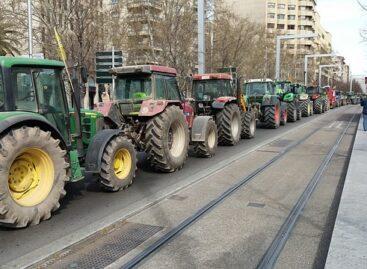Emergency situation in Hungarian potato fields – where do producers go from here?
Hungarian potato growers are working under increasing pressure: purchase prices are at rock bottom, the import flow seems unstoppable, and climate change is also a serious factor in all this.

(Photo: Pixabay)
Anyone who grows potatoes today needs a thick wallet and even thicker patience. According to experts, farmers have only one way: to persevere. Anyone who gives up now would only be able to return to the market later with significant investment. The economic risk is clearly demonstrated by the fact that in a five-year cycle it almost always happens: a loss-making year, a few mediocre results, and only one truly profitable season. According to Zsolt Polgár, head of the Keszthely Potato Research Institute of MATE, this is not only a domestic phenomenon, but also similar throughout Europe.
Domestic varieties versus imports
One of the key issues in potato production is the choice of seed tubers and varieties. According to Polgár, the competition is fierce: the message needs to be conveyed to the shrinking circle of producers that Hungarian varieties are at least as competitive as foreign ones. “Many still believe that imports are more reliable. However, they are not cheaper, and from a professional point of view, there are many arguments in favor of domestic varieties – for example, that they are resistant and can be replanted. The problem is that there is no proper communication that would convey this to farmers,” the expert said.
Continuous work, shrinking areas
As a result of climate change, the spring and autumn harvests have practically merged. This means that work continues all year round, while the cultivated areas are decreasing year by year. This season promises to be particularly difficult: according to farmers, they are facing the worst vintage in the past three decades. The situation is aggravated by import dumping, which floods the market with depressed prices. Many people prefer to store their crops rather than sell them at ridiculously low prices. Currently, potatoes can be sold for only 85-90 forints – this does not even cover production costs for most farmers.
European overproduction and storage problems
The potato crisis is not only affecting Hungary. The area under potato cultivation in the European Union has increased by 5 percent this year, and goods are also pouring in from North Africa, while last year’s stocks remain in warehouses in Western Europe. Due to overproduction and a lack of storage capacity, many farmers are forced to sell their crops at depressed prices. This further intensifies desperation, and more and more people feel that there is no way out of the current situation.
Agroinform/VG
Related news
Serbian farmers block roads to protest cheap imports
🎧 Hallgasd a cikket: Lejátszás Szünet Folytatás Leállítás Nyelv: Auto…
Read more >Related news
Zsófia Bánhegyi is the marketing, communications and public relations director of HUN-REN
🎧 Hallgasd a cikket: Lejátszás Szünet Folytatás Leállítás Nyelv: Auto…
Read more >








